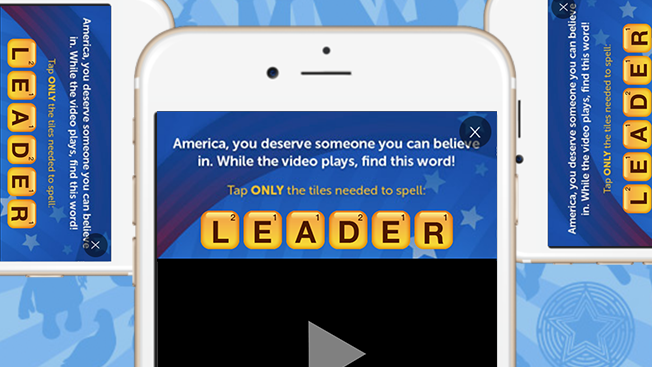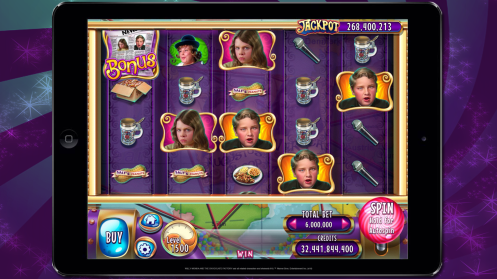by REBECCA DUKE

[1] Zynga logo
OVERVIEW
In 2007, Mark Pincus founded Zynga, the first social gaming company. Named after his dog Zinga, the company was created in order to make gaming more accessible and turn it into a more interactive, friendly experience [2]. Zynga has created some of the most successful social games to date, including Words with Friends, FarmVille, and Zynga Poker. Over one billion users have played Zynga games and connected via the company’s franchises.

[3] A sampling of Zynga games
INDUSTRY
The creation of Zynga spawned the entire social gaming industry, an industry of which Zynga continues to be a leader. According to IBISWorld, the industry has grown rapidly ever since its conception in 2007 [4]. Growth peaked during the 2008 recession, when many companies were downsizing and left unemployed Americans with more leisure time. In recovery from the recession, customers are slowly investing more and more in social games in order to unlock achievements and progress more quickly in the game (for example, while playing FarmVille, a user could pay a few dollars to expedite the growth of their crops and thus move on to bigger and better tasks).
[5] FarmVille 2: Country Escape
KEY EXECUTIVES

[6] Mark Pincus – Founder and Executive Chairman of the Board

[7] Frank Gibeau – Chief Executive Officer and Board of Directors Member
Earlier in March, Mark Pincus stepped down as CEO of Zynga and was replaced by Frank Gibeau [8]. Pincus still sits as the Executive Chairman of the Board and oversees the company. Frank Gibeau is a 20-year veteran of Electronic Arts, one of Zynga’s leading competitors, so he is expected to bring positive change and expertise to the company and allow it to progress financially.
FINANCIALS
Zynga is a publicly traded company, listed on the NASDAQ under the ticker ZNGA. The stock price currently sits at 2.48, a relatively high number since averaging 2.15 over the past three months [9]. Zynga stock took a tumble in early and mid-February after the publication of a disappointing fourth quarter and annual report. After bringing in $185 million in revenue, the company’s operating income and net income amounted to losses of $55 million and $51 million, respectively. These numbers were a stark contrast to the third quarter, when Zynga brought in $10 million more in revenue and net income was $3 million. Zynga has two main revenue streams: advertising, namely video and banner ads, and the sale of “virtual goods” from in-game purchases [10].

[11] NASDAQ – ZNGA

[13] Zynga Headquarters
CURRENT PROJECTS
In January, Zynga announced a partnership with The Rubicon Project in developing SponsoredPLAY, a new form of native advertising that allows political candidates to take advantage of what mobile ads have to offer [14]. SponsoredPLAY beta ads have seen six times the engagement rate of normal mobile advertisements, a metric that is incredibly important in today’s age of distracted consumers. With these ads, players connect with brands through mini games that incorporate a piece of the brand’s image. Specifically, The Rubicon Project introduces political candidates as the brands, and encourages the candidates to use the technology to engage voters in a fun and educational way. The SponsoredPLAY ads are also linked to Twitter to create a social buzz around the political issues that the user finds compelling. Ads are expected to be finalized and placed in the games later this year, just in time for the presidential election.

[15] SponsoredPLAY Mockup

[17] Willy Wonka & the Chocolate Factory Slots

[19] Crazy Cake Swap
FUTURE PROJECTS
Zynga has been promising investors two high-development games for awhile, CSR2 and Dawn of Titans, that are finally set to debut later in 2016 [20]. These games could bring in major revenue for Zynga if they become anywhere near as popular as Words with Friends or FarmVille. A recent trend with Zynga has been the overall decline in players, but huge increase in bookings for some of their popular games [21]. Essentially, this means that while there are fewer players, these players are spending a lot of time gaming. If Zynga can successfully recruit more of these avid gamers and grow their user base back up, they will continue to be a force to be reckoned with in the social gaming world.

[22] Dawn of Titans
SOURCES
[1] “Zynga Logo.” Pop Culture Blog. Dallas Morning News, 3 June 2013. Web. 25 Apr. 2016.
[2] “Zynga Leadership.” Zynga. Zynga, n.d. Web. 22 Apr. 2016.
[3] “About Game Cards.” Zynga. Zynga, n.d. Web. 25 Apr. 2016.
[4] “Social Network Game Development.” IBISWorld. IBISWorld, n.d. Web. 22 Apr. 2016.
[5] “Farmville 2: Country Escape.” Google Play. Google, n.d. Web. 25 Apr. 2016.
[6] “Mark Pincus.” Catchafire. Catchafire, 25 Sept. 2013. Web. 25 Apr. 2016.
[7] “Frank Gibeau.” Live Geek or Die. Disqus, 29 Mar. 2013. Web. 25 Apr. 2016.
[8] Takahashi, Dean. “Mark Pincus and Frank Gibeau Talk about the Future of Zynga and Social Mobile Gaming.” Venture Beat. VentureBeat, 2 Mar. 2016. Web. 20 Mar. 2016.
[9] “Zynga, Inc. (ZNGA).” Yahoo Finance. Yahoo!, n.d. Web. 24 Apr. 2016.
[10] Gobry, Pascual-Emmanuel. “How Zynga Makes Money.” Business Insider. Business Insider, 28 Sept. 2011. Web. 24 Apr. 2016.
[11] “Zynga’s Opening Day.” Gigaom. Knowingly, 16 Dec. 2011. Web. 25 Apr. 2016.
[12] Bruno, Alessandro. “ZNGA Stock: This Is Why the Bears Are Wrong on Zynga Inc.” Profit Confidential. Lombardi Publishing, 26 Feb. 2016. Web. 20 Mar. 2016.
[13] “Zynga Headquarters.” Games.com. AOL, 12 Nov. 2012. Web. 25 Apr. 2016.
[14] Pakula, Kelly. “Zynga & Rubicon Project Announce New SponsoredPLAY Custom Mobile Advertising Product for Political Campaign Advertisers.” Global Newswire. Nasdaq, 7 Jan. 2016. Web. 24 Apr. 2016.
[15] “Zynga Mockup.” Adweek. Adweek, 7 Jan. 2016. Web. 25 Apr. 2016.
[16] Shaul, Brandy. “Zynga Launches Willy Wonka & the Chocolate Factory Slots on Facebook, Mobile.” Social Times. Adweek, 31 Mar. 2016. Web. 24 Apr. 2016.
[17] “Willy Wonka Slots.” Zynga Blog. Zynga, 31 Mar. 2016. Web. 25 Apr. 2016.
[18] Allen, Jennifer. “Crazy Cake Swap Review: Sweet, Familiar, and ‘Friendly’.” Gamezebo. Gamezebo, 5 Apr. 2016. Web. 25 Apr. 2016
[19] “Crazy Cake Swap.” Google Play. Google, n.d. Web. 25 Apr. 2016.
[20] Morris, Chris. “What Will It Take To Turn Zynga Around?” Fortune. Fortune, 11 Feb. 2016. Web. 25 Apr. 2016.
[21] Nusca, Andrew. Here’s Why Changing CEOs Won’t Fix Zynga. Fortune. Fortune, 2 Mar. 2016. Web. 20 Mar. 2016.
[22] “Dawn of Titans.” NaturalMotion. NaturalMotion, 5 Mar. 2015. Web. 25 Apr. 2016.

![[25] Zynga logo, source: Dakota Financial News](https://bejone03.expressions.syr.edu/trf235/files/2015/09/zynga-inc-logo-300x280.jpg)
![[26] source: Forbes.com](https://bejone03.expressions.syr.edu/trf235/files/2015/09/320x486-198x300.jpg)
![[27] FarmVille logo, source: Logopedia](https://bejone03.expressions.syr.edu/trf235/files/2015/09/Farmville-300x114.jpg)
![[28] Zynga goes public, source: gigaom.com](https://bejone03.expressions.syr.edu/trf235/files/2015/09/zynga-listing-day-300x200.jpg)
![[29] Rising Tide Games logo, source: blog.zynga.com](https://bejone03.expressions.syr.edu/trf235/files/2015/09/rising-tide-300x300.png)
![[32] Empires and Allies logo, source: www.giantbomb.com](https://bejone03.expressions.syr.edu/trf235/files/2015/09/1877262-empires_allies_logo_1024x953-300x278.jpg)
![[22] Zynga SponsoredPLAY, source: adage.com](https://bejone03.expressions.syr.edu/trf235/files/2015/09/Zynga_SponsoredPlay3x2-300x200.jpg)